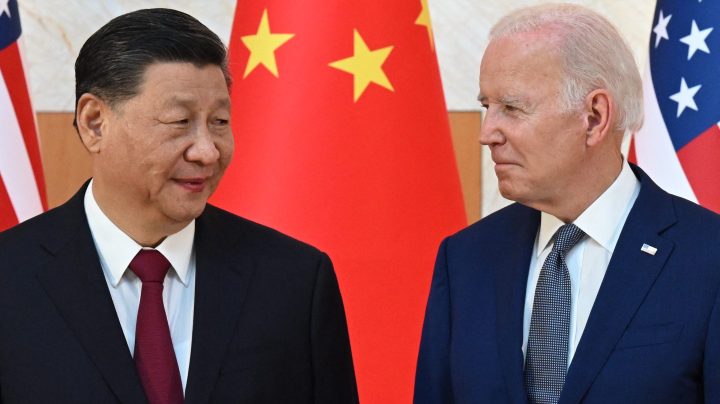
Complex economic relationship lurks on sidelines of Biden-Xi meeting
Complex economic relationship lurks on sidelines of Biden-Xi meeting

President Joe Biden and Chinese President Xi Jinping had their first face-to-face meeting Monday as the G-20 conference was preparing to get underway in Bali, Indonesia.
The relationship between the two nations — in its diplomatic, strategic, economic and technological aspects — has been problematic, conflictual and competitive for at least a decade. And it’s become more so since then-President Donald Trump started a trade war and imposed punitive tariffs on Chinese imports to the U.S. and China retaliated against goods from the U.S. Far from relaxing those tariffs, Biden has added restrictions on exporting advanced technology to China in an effort to protect U.S. national security.
Economic tensions, however, were relegated to the background of the presidential conversation in Bali. In the forefront were hot-button issues like Taiwan. But the volume of trade between China and the U.S. is huge, and there’s a lot at stake for both countries.
Xi has just expanded his power and is beginning to address some of his nation’s persistent economic problems, including a “zero-COVID” policy that’s repeatedly shut down major cities and industries and an overheated property market that’s rapidly deflating.
All that has led to a sharp slowdown in China’s economic growth, which, until recently, has been the wonder of the world.
“2022 has been effectively zero to 2% GDP growth,” said Daniel Rosen at economic research firm Rhodium Group.
He said that over the next two years, gross domestic product is likely to expand at under 3%.
“Not bad for a nearly $20 trillion economy, but not anywhere close to the promises that Beijing has made,” Rosen said.
Chinese consumers are frustrated, said University of Chicago political scientist Dali Yang, and they’re pessimistic about the future.
“The way that I would describe it is ‘exhaustion’ after three years of zero-COVID — because of the uncertainties, how those policies have hurt businesses,” Yang said.
For the rest of the world, a persistently sluggish Chinese economy means less opportunity for trade. That’s for both developing economies that provide China with raw materials, and advanced economies — like Germany and the U.S. — that provide goods like cars and machinery.
U.S.-China trade is already severely hampered by Trump’s punitive tariffs and Biden’s new restrictions on high-tech exports, said Chad Bown at the Peterson Institute for International Economics.
“China is still buying some stuff from the United States, a fair amount of agricultural products,” Bown said. “But it has never resumed its purchases of manufactured goods. And a lot of the energy products — coal and [liquefied natural gas] and oil-petroleum products — those have basically disappeared.”
Xi and Biden’s meeting might be a harbinger of more cooperation between the two superpowers on common-ground issues like climate change. And it may signal that this still massive trade relationship isn’t about to break down even further.
There’s a lot happening in the world. Through it all, Marketplace is here for you.
You rely on Marketplace to break down the world’s events and tell you how it affects you in a fact-based, approachable way. We rely on your financial support to keep making that possible.
Your donation today powers the independent journalism that you rely on. For just $5/month, you can help sustain Marketplace so we can keep reporting on the things that matter to you.

















